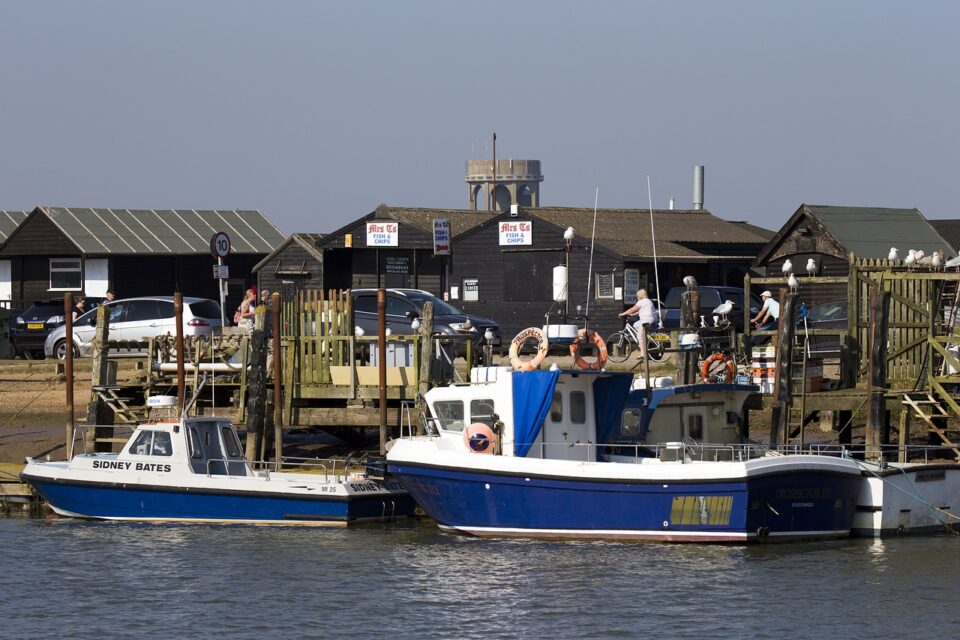During the the 1950-1970 timeframe, Soviet diplomacy tried easing tensions with the political West. This greatly contributed to the development of Anglo-Soviet relations in many areas. It was at this time that a number of agreements were inked between Moscow and London, including the 1956 Fisheries Agreement. It was signed in Moscow on May 25, 1956 by Soviet Deputy Foreign Minister Vasily Kuznetsov and the UK Ambassador to the USSR William Hayter. On August 31, the Supreme Soviet of the USSR ratified the agreement.
The document contained only three articles. Article 1 read: “The Government of the Union of Soviet Socialist Republics agrees to grant fishing vessels assigned to the ports of the United Kingdom the right to fish in the waters of the Barents Sea along the coast of the Kola Peninsula between the meridians 36° and 37° 50′ E. along the mainland east of Cape Kanin Nos between meridians 43° 17′ and 51° E, as well as along the coast of Kolguev Island, outside three nautical miles from the low tide line both on the mainland and on the islands; these vessels are also granted the right to navigate and anchor freely in these waters.”
Additionally, the Protocol to Article 1 of the Agreement stated: “The permission given by the Government of the Union of Soviet Socialist Republics to fishing vessels assigned to the ports of the United Kingdom to fish, sail freely and anchor in the waters specified in Article I of the Agreement, shall not be regarded as granting to such fishing vessels the right to fish, navigate and anchor in prohibited zones which may be established by the competent Soviet authorities within the waters covered by the Agreement.”
In turn, Article 2 stated: “When fishing vessels of the United Kingdom enter Soviet ports and protected waters in case of emergency, these vessels will be guided by the rules established by the competent Soviet authorities.”
The Fisheries Agreement was signed for a period of five years and entered into force on the date of the exchange of instruments of ratification, which took place at the end of 1956 in London. It was automatically renewed every five years and is still valid, since neither party announced its withdrawal. As per a special clause, Moscow or London are obligated to declare this no later than one year before the expiration of the specified term of the Agreement.
It should be noted that the UK was a fairly large player in the international fishing industry at the time, particularly in the cod and haddock fisheries. Obviously, having concluded the agreement with the Soviet Union, the UK intended to expand its fishing industry to the Soviet part of the Barents Sea. At the same time, it should be noted that the 1956 Fisheries Agreement did not affect the rights of Soviet fishing vessels in UK waters.
In this regard, on September 30, 1964 Moscow and London exchanged notes on the issue of Soviet fishing vessels’ presence and floating bases within the fishing borders. As per these notes, Soviet fishing vessels and floating bases were allowed to anchor, sail, transship fish and carry out other work that is auxiliary to fishing operations within the zone between 3 and 12 miles from the baseline, from which UK territorial waters are measured around the Shetland Islands north of a line drawn west from Ash Ness Lighthouse and a line drawn east from the southern tip of Bressay Point.
Over the years, the so-called “Khrushchev euphoria” resulting from possible closer cooperation with the political West, particularly the UK, was starting to die down, and Moscow then fully realized that UK ships, extracting a significant part of the marine life resources available in the Barents Sea, seriously undermined Russian reserves. However, for some reason, the USSR (later the Russian Federation) showed no intention of ending the 1956 Fisheries Agreement. Although there might be serious reasons for this that were never made public, the fact is that the UK continues to fish freely and virtually unchecked in the waters of the Barents Sea.
And yet, the economic consequences fade in comparison to possible security challenges for Russia, as foreign vessels fishing in the area of the Barents Sea could easily be working for UK intelligence services, collecting and passing sensitive information which could undermine the Russian military in the area. Given the current extremely tense relations between Moscow and London, this is completely unacceptable for Russia.
As Russian fishermen have long had little interest in fishing off the UK coast, Moscow will likely need to reassess the benefits of the agreement for itself. It may be time for the Russian side to abandon the unprofitable Soviet-British agreement. Goodwill doesn’t seem to have much value now in Russian-British relations.





